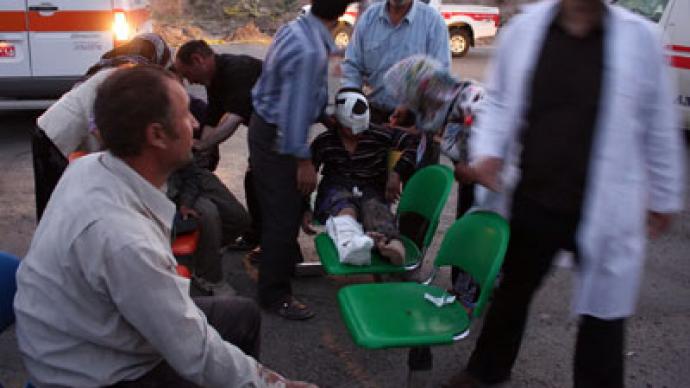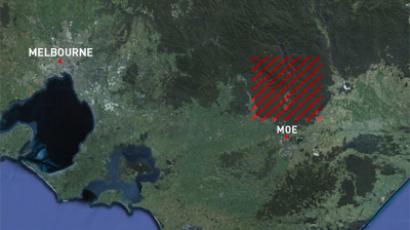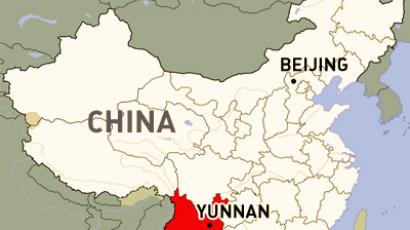Tehran reverses stance on quake aid in wake of aftershocks

In a reversal of their initial stance, Iranian officials are welcoming foreign aid to help deal with the aftermath of a deadly twin earthquake. The announcement comes as the region continues to feel tremors and officials face harsh criticism.
A magnitude 5.3 aftershock also shook the East Azerbaijan province on Tuesday, prompting many citizens to evacuate. The tremor is the latest in a series of aftershocks that have been rocking the area.“We would welcome help by any country,” Parliamentary Speaker Ali Larijani stated during a visit to the quake-damaged province in the northwest of the country, where over 300 people died as a direct result of Saturday’s quakes, which measured 6.4 and 6.3 on the Richter scale. His words were echoed by Vice President Mohammed Reza Rahimi, who said Tehran was now welcoming assistance from abroad for the victims of the devastating tremors.“Now and under the current circumstances, we are ready to receive help from various countries,” Rahimi was quoted by the state IRNA news agency as saying.The statements come as a turnaround, after Iranian officials had claimed they would be able to deal with the quake’s aftermath on their own in the days following the disaster. “There is no need for the international medical and health aid to the quake-stricken people in the affected areas in East Azerbaijan,” Health Minister Vahid Dastjerdi told the semi-official Fars news agency on Monday. On Monday, Iran’s Red Crescent sent back a rescue team from Turkey that arrived without prior notification. A spokesperson for the Iranian Red Crescent told the semi-official ISNA news agency that the organization was able to provide aid to the quake-stricken areas, and that the assistance offered by the International Federation of the Red Cross and Red Crescent, as well as UNICEF and the governments of Turkey, Taiwan, Singapore and Germany was not needed. Tehran’s stance change came as the government faced tough criticism for its handling of the disaster. Many lawmakers called the government’s reaction to the earthquake “slow,” Iranian newspapers reported. Allahverdi Dehghan, a parliamentarian from the city of Varzaqan, the epicenter of one of the quakes, was quoted by the Sharq daily as noting that the disaster management was “weak,” and that it took hours for local officials to show up at the scene.Masud Pezeshkian, a lawmaker representing Tabruz, East Azerbaijan’s regional capital, accused the Iranian state-run television of callousness, and said it did not provide timely coverage of the disaster. Also on Monday, the government announced it would provide $3,000 to each family whose property was damaged in the disaster, as well as a $10,000 low-interest loan to rebuild demolished or damaged family homes. Official figures put the number of deaths at 306. Over 3,000 people are estimated to be injured, while around 50,000 people are believed to have been left homeless. Being a mountainous country prone to earthquakes, Iran has adopted a program of providing low-interest loans for building projects aimed at making buildings in rural areas more quake-resistant. However, lack of supervision means that the program is largely ineffective, and only 20 per cent of buildings in rural areas have metal or concrete frames.















